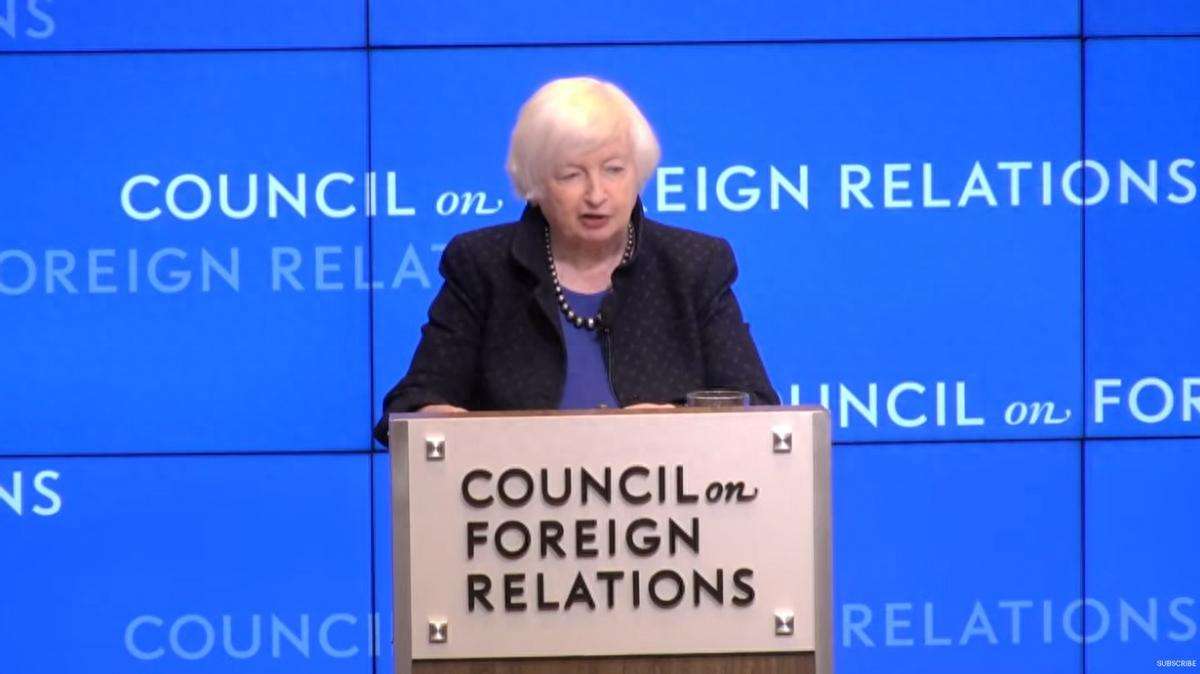China's Sell-Off Leads to Plunge in Global Dollar Reserves
Advertisements
The recent fluctuations in the financial relationship between China and the United States have left economists questioning the current dynamics that govern the world's two largest economies. Following China's significant sell-off of U.S. Treasury bonds, the U.S. dollar has taken a notable hit, shedding its once-unassailable status as the world's primary reserve currency. This shift has garnered the attention of U.S. authorities, prompting urgent reconciliatory measures as the current administration approaches its end. The crucial question that emerges is whether there is any substantial ground for negotiations with a government on the brink of departure.
On January 7, a key dialogue took place between He Lifeng, the chief negotiator for China, and Janet Yellen, the U.S. Treasury Secretary. This video conference might be perceived as a final attempt to stabilize the economic ties between the two nations before a new administration takes office. As outlined in the accompanying press release, both sides expressed a commitment to maintain communication and manage existing differences during this transitional phase, illustrating a cautious approach towards future dialogues.
The previous month had indeed painted a troubling picture for U.S.-China economic relations. The outgoing government has seized its remaining days by intensifying sanctions against 136 Chinese companies tied to the semiconductor industry, reflecting a desperate clinging to policies of economic containment. In response, China instituted stricter export controls on key materials such as gallium, germanium, graphite, and superhard materials, while simultaneously including 28 U.S. firms on its export control list. This tit-for-tat approach has only deepened the rift between both countries, leaving many to wonder about the consequences.

The dire state of U.S.-China relations was further highlighted in a startling admission made by U.S. Secretary of Commerce Gina Raimondo on December 22. In a candid acknowledgment, she conceded that the U.S.'s attempts to curb China's access to advanced technologies have largely failed, noting that China’s technological prowess has continued to escalate, marking a historical deficit in power balance. This remark fundamentally undermines four years of concerted efforts aimed at containing China, shifting the narrative towards an acknowledgment of limitations in U.S. strategies.
As if to underscore this setback, new statistics released by the U.S. Treasury revealed that by October 2024, all three largest foreign holders of U.S. debt—Japan, China, and the United Kingdom—had drastically reduced their holdings. Notably, China's divestment marked the fourth consecutive month of selling off U.S. Treasury bonds, a trend that warrants attention. Furthermore, according to the International Monetary Fund, the dollar's share in global foreign exchange reserves has plummeted to its lowest level in nearly three decades. This decline suggests not just a diminishing faith in the dollar but also a potential shift in the global financial landscape.
The implications of weakening dollar dominance extend far beyond mere financial statistics. The U.S. has long utilized its currency to exert economic influence globally, often equated with exporting inflation and bolstering domestic economic stability. The erosion of this financial might could herald troubling times ahead for the United States as it wrestles with how to cultivate its economic recovery while still opposing a burgeoning economic partnership with China. Despite recent aggressive statements from U.S. officials advocating for tariffs against Chinese goods, the urgency of maintaining line communications is crucial, indicating a complex juxtaposition of rhetoric and reality.
In examining the atmosphere of the recent dialogue, one may draw insights from the two pivotal statements outlined in the press release. The first revealed China's explicit concern regarding the U.S.'s trade restrictions, particularly criticizing recent trade investigations targeting Chinese firms. This unfiltered expression of dissatisfaction serves as an unequivocal message to the U.S., highlighting a lack of diplomatic niceties in addressing economic grievances. On the other hand, the subsequent remarks from both sides characterizing the call as "candid, in-depth, and constructive" glossed over the absence of any substantive consensus, hinting at a less-than-optimistic outcome from the discussions.
As previously suggested by Raimondo, the U.S. efforts to suppress China have proven futile; the only viable route left may indeed be one of collaboration and innovation. Reports indicating that the president-elect may declare a national economic emergency signal a recognition of the gravity of the U.S. economic situation, suggesting an increased urgency to maintain the communication channels between Washington and Beijing. Yellen's recent outreach not only aims to craft a diplomatic legacy for the outgoing administration but also serves as a crucial signal to her successor regarding the importance of bipartisan cooperation over adverse trade policies.
In a telling irony, the current administration previously wielded threats against nations allied with China, cautioning against the abandonment of the dollar or facing exaggerated tariffs. Yet, as the influence of the dollar wanes, the question arises: can the U.S. continue to assertively impose tariffs on China without facing economic backlash? As the ground shifts beneath their feet, both nations will need to navigate this challenging terrain with greater care if they hope to find a mutual path forward.